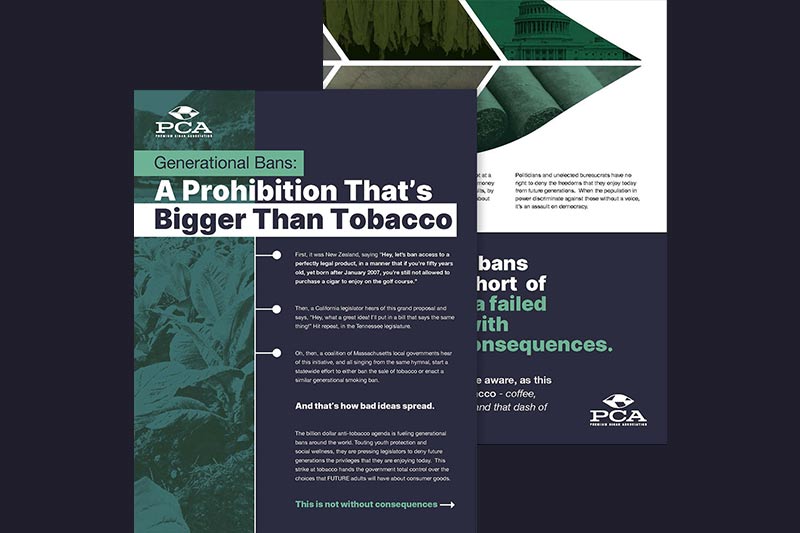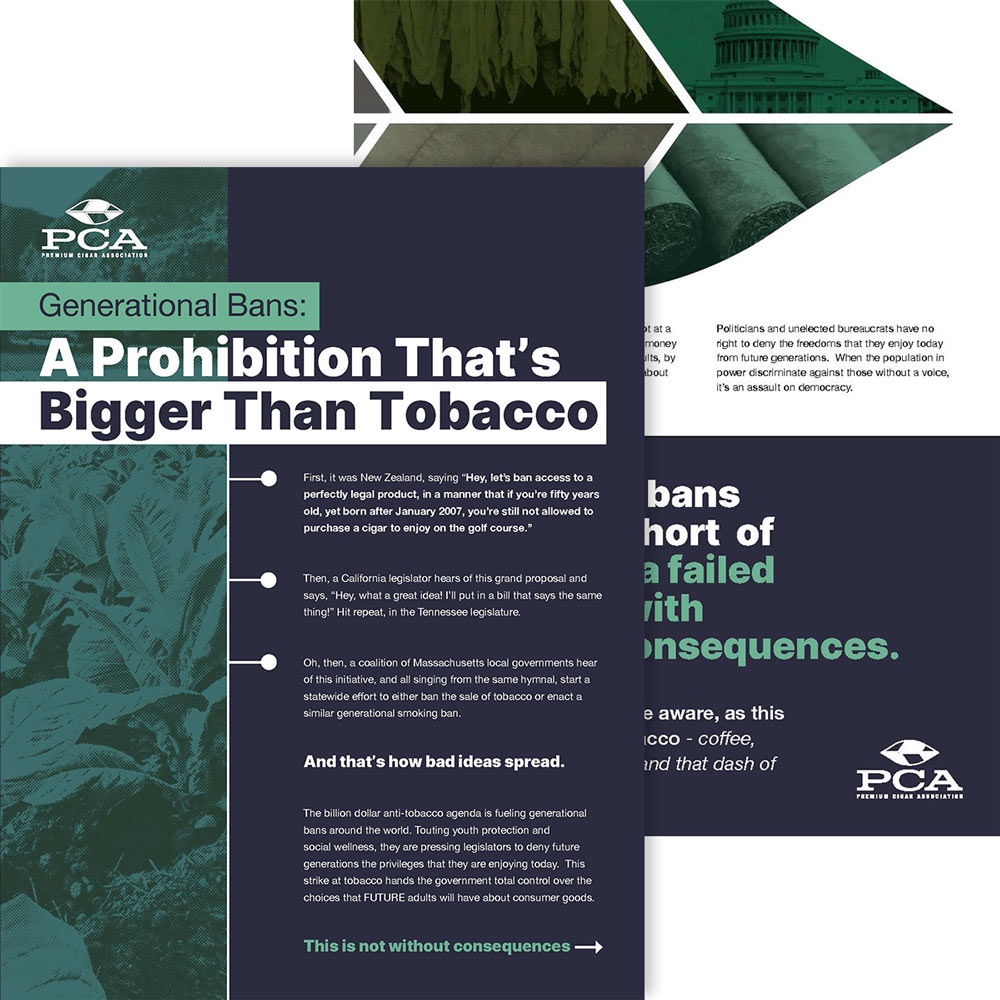First, it was New Zealand, saying, “Hey, let’s ban access to a perfectly legal product, in a manner that if you’re fifty years old, yet born after January 2007, you’re still not allowed to purchase a cigar to enjoy on the golf course.”
Then, a California legislator hears of this grand proposal and says, “Hey, what a great idea! I’ll put in a bill that says the same thing!” Hit repeat, in the Tennessee legislature.
Oh, then, a coalition of Massachusetts local governments would hear of this initiative and, all singing from the same hymnal, start a statewide effort to either ban the sale of tobacco or enact a similar generational smoking ban.
And that’s how bad ideas spread.
The billion-dollar anti-tobacco agenda is fueling generational bans around the world. Touting youth protection and social wellness, they are pressing legislators to deny future generations the privileges that they are enjoying today. This strike at tobacco hands the government total control over the choices that FUTURE adults will have about consumer goods.
This is not without consequences:
- Civil Liberties: While the government is responsible for protecting the general public, this should be balanced with individual liberty. Adults should be free to make their own choices as long as those choices do not cause harm to others. Indoor smoking bans have run their course, and the free market has attended to those that remained free from such government encroachment. Generational bans, however, go a step further by taking away the right of consenting adults to choose what they consume or purchase, even in private and outdoor settings. This raises concerns about government overreach and the erosion of individual liberties.
- Economic Impact: By arbitrarily extinguishing the market, generational bans are responsible for future job losses, small business closures, and, indeed, the elimination of entire industry sectors. Additionally, governments collect substantial tax revenue from legal tobacco products. A generational ban on tobacco sales would create significant budget shortfalls that have yet to be assessed.
- Black Markets: Prohibition reduces profitability, forces the closure of businesses, and creates a black market where one does not currently exist. The influx of unregulated products into the marketplace potentially introduces dangers of unknown substances and products. This will drain the resources of law enforcement and introduce new criminal elements into communities.
- Social Justice: Effectively enforcing age restrictions on a generational ban would be a logistical nightmare. Imagine the reality of a 51-year-old being considered competent to make a legal consumer choice while a 50-year-old is not. Policing practices will have to adapt, and consumer stop-and-ID will become common practice.
Then there is the public health debate. Not all tobacco products are created equal. There are ample volumes of analysis that objectively depict the lack of adverse effects of enjoying a premium cigar, especially in the areas of inhalation, addiction, and mortality. The evidence is even more clear on the lack of youth access and appeal. Generational smoking bans are clearly another attempt at a “one size fits all” approach to attacking tobacco.
The money behind anti-tobacco has no shame and no limits. Adults, by definition, are capable of making informed decisions about their own health and well-being. Politicians and unelected bureaucrats have no right to deny the freedoms they enjoy today to future generations. When the population in power discriminates against those without a voice, it’s an assault on democracy.
Generational bans are nothing short of prohibition – a failed experiment with dangerous consequences. The general public should be aware that this proposal is bigger than tobacco: coffee, cocktails, steaks, soft drinks, and that dash of salt are all next.
– This article was contributed by the PCA Government Affairs team.


